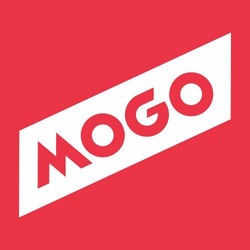
By 2025, Millennials will hold 75% of the global workforce. Closely behind them are Gen Z, born in the early 2000s onwards, these digital natives never lived without the Internet or mobile technology. They expect instant information and gratification, 24-hour service and frictionless mobile experiences. When it comes to banking, both groups desire personalised online services and they place a lot less value on cash-based transactions than the generations before them.
According to the 2015 TD Bank Checking Experience Index, an annual survey of 1,500 Americans conducted by TB Bank, nearly three-quarters (74%) of Gen Z’s budding financial consumers describe their debit card as “essential” and 41% view their bank’s mobile app as non-negotiable in their daily lives.
With these trends in mind, we are increasingly looking at the possibility of a cashless society in the near future. Will bank branches become a thing of the past, for example?
New FinTech providers, such as Uphold, and other cloud money platforms that deal exclusively with the internet of money, signal the rise of connected commerce. Everyday devices such as appliances, wearables and cars can now connect to the Internet thanks to tiny sensors embedded inside. More and more of these smart devices will have cutting-edge digital payment capabilities that allow them to initiate payments on consumers’ behalf, when contextually relevant.
Almost every type of financial activity – from retail banking to wealth management - is being reimagined digitally by financial service innovators to meet changing consumer demands.
Within the next 5 years, we will witness the emergence of more FinTech companies who have full banking licensing and who will buy or build physical distribution to complement their existing customer offering. The European Payment Services Directive (PSD2) is also set to further open the payment market in Europe to these new services and players, known as ‘Payment Initiation Service Providers (PISPs), by providing them with an official legal framework in which to operate. This will enable consumers to onboard and offboard money at ease. So where exactly will the traditional financial institutions fit in?
The banking giants will still provide the very valuable infrastructure and liquidity required to power the financial services industry. But what we are going to see more and more are banks who have hugely innovative services and applications running in conjunction with their existing infrastructure. They will enter into strategic partnerships with FinTech start-ups to introduce new innovative services and technology that will help them to maintain and boost their competitive advantage. And they may even eventually decide to invest in or acquire some of these companies who share their data-driven, customer-centric vision and who bring significant value to the bank’s end-customers.
A case in point: Spanish financial services provider BBVA purchased a 30% stake in Atom Bank, a UK online-only consumer bank, in November 2015. Since then, they have also acquired Holvi, a Dutch online-only bank specifically for entrepreneurs and SMEs.
As financial institutions go on this radical journey of digital reinvention, enterprise-grade FinTech service providers will provide the vital elements banks need to build deeper relationships with their customers, create new revenue streams and bridge the technology gap that separates them from the new breed of financial service challengers.



